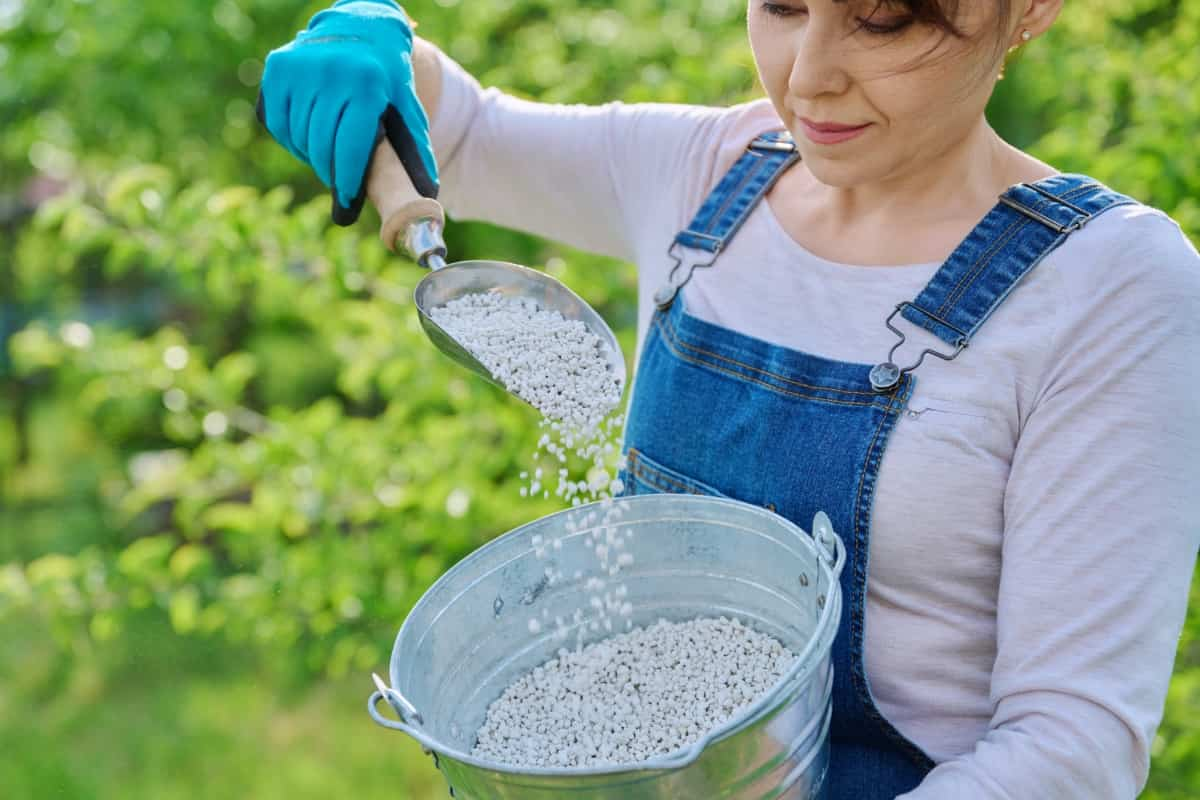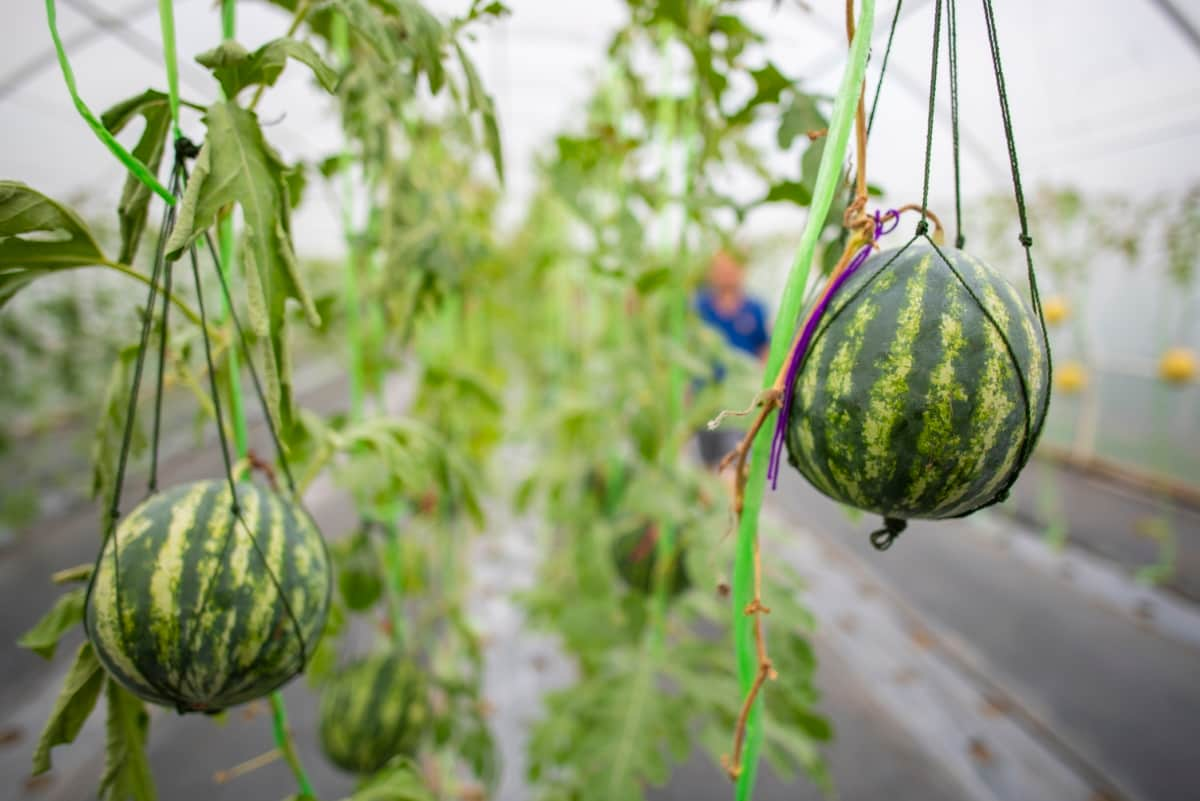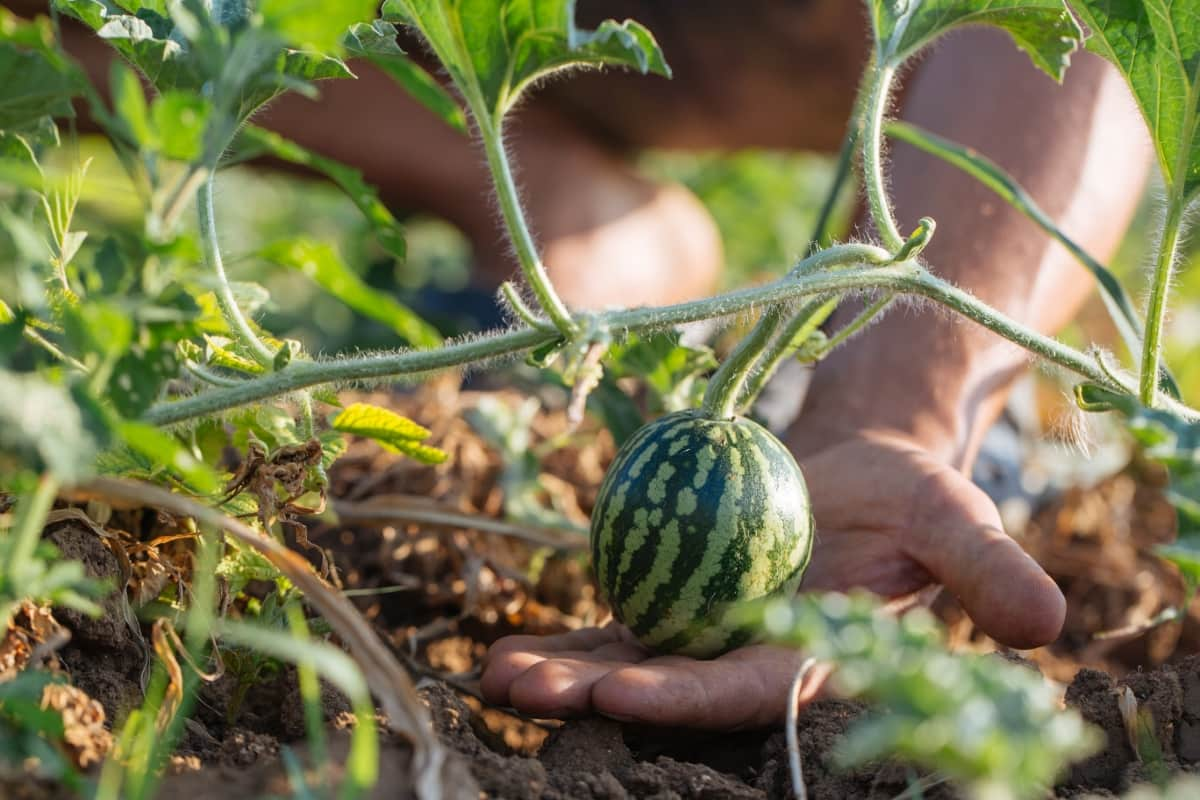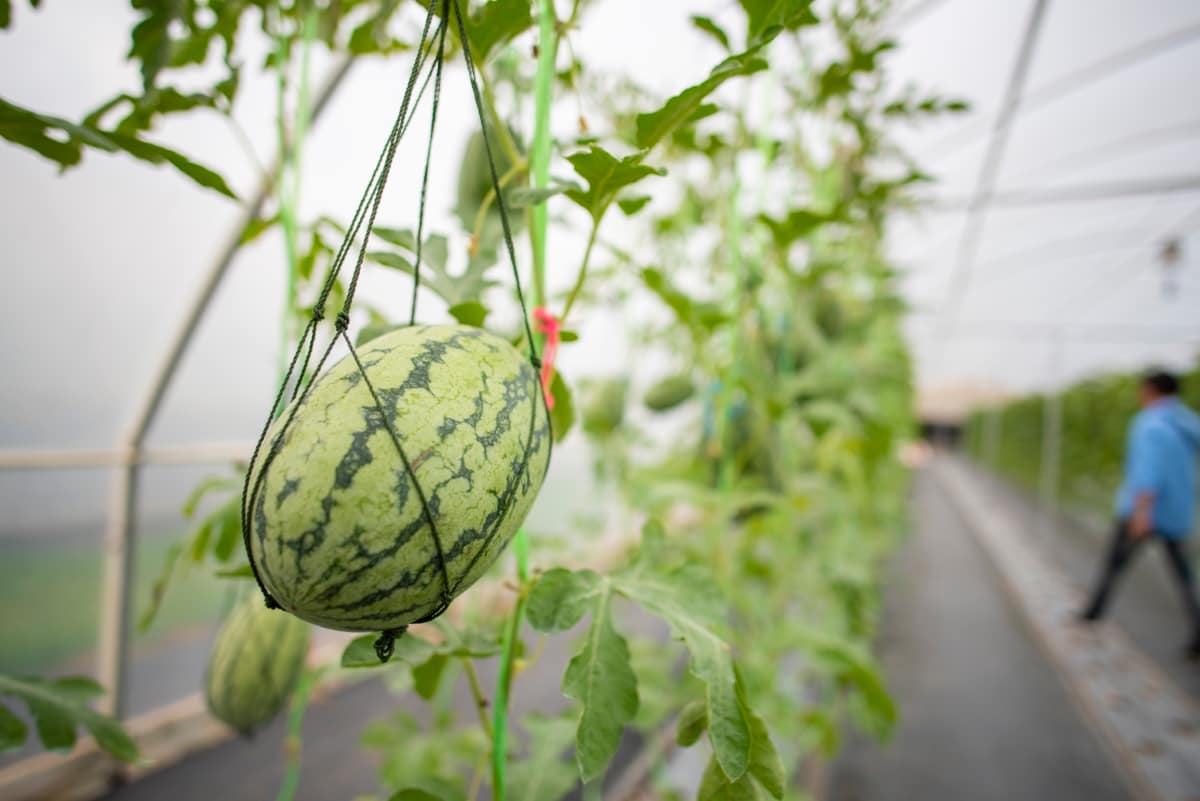Welcome to the Beginner’s Guide to Watermelon Fertilizer Management. We’ll explore essential aspects like Soil Preparation for Watermelons and the debate between Organic vs. Synthetic Watermelon Fertilizers. Understand Watermelon NPK Fertilizer Requirements and how to detect Nutrient Deficiencies. Discover the Environmental Impact of Watermelon Fertilization and delve into Advanced Fertigation Methods.

Craft a Fertilizing Schedule for Watermelon Plants to ensure consistent nourishment. Learn innovative techniques such as Watermelon Foliar Feeding and Synthetic Fertilizer Application for Watermelons. Let’s cultivate thriving watermelon crops while being mindful of sustainability and effectiveness.
Watermelon Fertilizer Management
Introduction to Watermelon Cultivation: Watermelon cultivation is a rewarding venture, offering juicy fruits and economic benefits. It’s essential to understand the basics for successful farming. A sunny location, well-drained soil, and proper spacing are key to optimal growth. Adequate water supply, with controlled irrigation, is vital.
The Role of Fertilization in Watermelon Farming: Regular soil testing and a comprehensive watermelon fertilization guide are essential for healthy plant growth and fruit quality, incorporating balanced nutrients like nitrogen, phosphorus, and potassium for optimal yields.
Basic Watermelon Plant Requirements: Watermelon plants thrive with proper spacing, air circulation, mulching, temperature, and regular monitoring. Mulching retains moisture and deters weeds, while warm conditions thrive. Regular pest and disease intervention is crucial for successful harvest.
Understanding Soil for Watermelons
Importance of Soil Testing: Soil testing is crucial for successful watermelon cultivation, assessing soil composition, pH levels, and nutrient content before planting. Regular testing identifies deficiencies, allowing targeted fertilization and preventing common issues like poor drainage or nutrient imbalance.
Preparing Soil for Planting: Prepare watermelons and till soil for improved aeration and drainage, add organic matter for nutrient enrichment, use organic fertilizers for healthier ecosystems, and adjust pH levels with lime or sulfur. Properly prepared soil supports robust growth and abundant harvests.
Selecting the Right Fertilizer: Since organic fertilizers, like compost or manure, are sourced naturally, selecting the appropriate one for soil health requires an understanding of the differences between the two types of fertilizers.
Types of Fertilizers: Organic vs. Inorganic: Organic fertilizers like compost promote long-term soil fertility, while inorganic fertilizers provide immediate nutrient availability for quick plant growth. Watermelon NPK fertilizer requirements should be balanced with nitrogen-phosphorus-potassium.
Understanding Fertilizer Labels: NPK Ratios: NPK ratios guide nutrient provision in watermelons, with a balanced 5-10-10 ratio supporting healthy foliage, flowering, and fruiting. Organic and synthetic fertilizers should match plant requirements, evaluating labels for appropriate concentrations.
Nutritional Needs of Watermelon Plants
Major Nutrients: Nitrogen, Phosphorus, Potassium: Watermelon plants require nitrogen, phosphorus, and potassium for robust growth. Excessive nitrogen can hinder vine growth and fruit production, so balanced fertilization is essential for optimal nutrient uptake and fruit development.
Micronutrients: Iron, Zinc, and Others: Micronutrients are crucial for healthy watermelon growth, including iron for chlorophyll synthesis, zinc for enzyme activity, and boron, manganese, and copper for metabolic processes. Regular soil testing can identify deficiencies, allowing for targeted supplementation through foliar sprays or amendments, promoting optimal growth and fruit quality.
Timing and Frequency of Fertilization
Pre-Planting Fertilization Strategies: To ensure robust growth, it’s crucial to prepare the soil adequately with micronutrients for healthy watermelon growth before planting. Incorporating organic fertilizers rich in nitrogen, phosphorus, and potassium sets a solid foundation for watermelon plants to thrive.
Fertilization Schedule During the Growing Season: Watermelon plants require constant fertilization using organic fertilizers and foliar feeding techniques for optimal growth and fruit development. Adjusting the routine based on plant requirements ensures a consistent nitrogen supply.
In case you missed it: 9 Easy Steps to Growing Seedless Watermelons from Seed

Fertilizer Application Methods
Soil Application Techniques: Soil application techniques for watermelons include organic and synthetic fertilizers, promoting nutrient uptake by plant roots and supporting efficient growth through precise nutrient delivery.
Foliar Feeding and Its Advantages: Foliar feeding allows nutrients to be absorbed through the leaves, bypassing soil deficiencies. Watermelon foliar feeding techniques enable rapid nutrient absorption, aiding in quick growth and fruit development. This method proves advantageous during periods of soil nutrient imbalance or stress.
Organic Fertilization Practices
Using Compost and Animal Manure: Organic farming utilizes compost and animal manure to enhance soil fertility, reduce waste, and promote a healthy nutrient cycle, minimizing environmental impact.
Green Manures and Cover Crops for Soil Health: Green manures and cover crops play a vital role in maintaining soil health. Legumes, like clover, fix nitrogen, benefiting the soil. These practices also prevent erosion, suppress weeds, and promote biodiversity, ensuring a resilient and productive ecosystem.
Synthetic Fertilizer Use
Advantages of Synthetic Fertilizers: Synthetic fertilizers enhance crop yield and quality by providing readily available nutrients for plant growth. They are convenient, tailored to specific nutrient requirements, and promote efficient plant uptake. They also aid in quicker nutrient absorption, reducing nutrient deficiencies.
How to Apply Synthetic Fertilizers Safely: Efficient watering practices and integrated pest management are crucial for fertilized watermelons to prevent nutrient leaching and optimize absorption. Regular monitoring for nutrient deficiencies and addressing imbalances is essential for optimal growth and yield.
Watering and Fertilization
The Relationship Between Watering and Nutrient Uptake: Understanding the link between watering and nutrient uptake is vital for plant health, as it facilitates efficient nutrient absorption, growth, and development and facilitates nutrient movement from soil to roots.
Efficient Watering Techniques for Fertilized Plants: Implementing efficient watering practices is essential, especially for fertilized plants like watermelons. Consistent moisture levels and targeted watering methods help optimize nutrient absorption and minimize wastage, fostering healthy plant growth and higher yields.
Weed and Pest Management
Impact of Weeds on Fertilization: Integrated Pest Management (IPM) is a method used to control weeds in watermelons, addressing the issue of weeds competing for essential nutrients with crops. This approach combines cultural and chemical methods to control weeds effectively.
Integrated Pest Management (IPM) Practices: Fertilization tips for hybrid watermelon varieties are crucial, ensuring optimal growth and yield for hybrid watermelon varieties while minimizing pest impact on crop health.
Monitoring Plant Health and Soil Fertility
Recognizing Signs of Nutrient Deficiencies: Observing plants closely is crucial for their health. Look for signs like yellowing leaves, stunted growth, or color changes.
Adjusting Fertilization Based on Plant Observations: Efficiently manage watermelon plants by adjusting fertilization, implementing hybrid varieties, and regularly assessing soil nutrient levels to minimize environmental impact and maintain soil fertility.
Fertilization for Different Watermelon Varieties
Tailoring Fertilizer Practices for Variety Needs: Understanding watermelon varieties’ nutrient requirements is crucial for effective fertilization. Hybrid varieties require balanced nutrients, while heirloom varieties thrive with less intensive fertilization and organic inputs. Tailoring schedules ensures optimal growth.
Considerations for Hybrid vs. Heirloom Varieties: Hybrid varieties benefit from targeted fertilization regimens, while heirloom varieties respond well to organic fertilizers, minimizing synthetic inputs and environmental impact.
Environmental Considerations in Fertilization
Reducing Environmental Impact: To reduce fertilization’s environmental impact, watermelon growers can adopt sustainable practices like Watermelon Foliar Feeding to improve nutrient absorption and reduce soil pollution.
Fertilizer Runoff and Water Quality: Best Organic Fertilizers for Watermelons can address fertilizer runoff and water quality concerns, while cautious Synthetic Fertilizer Application is recommended to prevent water overload and mitigate ecosystem effects.
In case you missed it: Fertilizing Potted Watermelon Vines: Organic, Natural, Homemade, NPK, and Schedule

Advanced Fertilization Techniques
Fertigation: Combining Fertilization with Irrigation: Fertigation is a method that integrates fertilization into irrigation systems, providing targeted nourishment to plants throughout their growth cycle. This technique optimizes resource utilization, enhances crop yield, and improves quality.
Controlled-Release Fertilizers for Sustained Feeding: Controlled-release fertilizers are revolutionizing farming by ensuring sustained feeding, promoting steady growth, and minimizing nutrient wastage. They complement organic fertilizers, fostering healthy soil ecosystems and reducing synthetic application.
Troubleshooting Common Issues
Over-Fertilization Symptoms and Solutions: Over-fertilization can cause stunted growth and discolored leaves, so flushing the soil with water is recommended.
Correcting Imbalanced Nutrient Levels: To ensure optimal watermelon growth, it’s crucial to monitor soil composition, address deficiencies, explore foliar feeding techniques, and experiment with organic fertilizers, avoiding synthetic over-reliance.
In case you missed it: Watermelon Companion Plants: Chart, Benefits of Growth and Yield

Conclusion
Mastering watermelon Fertilizer Management is key for bountiful harvests. Balancing organic and synthetic fertilizers optimizes growth while minimizing environmental impact. Remember, regular monitoring and adjustment are vital for healthy watermelon plants.
- Feed Your Flock for Less: Top 10 Tips to Save on Chicken Feed
- Ultimate Guide to Ossabaw Island Hog: Breeding, Raising, Diet, and Care
- Hatching Answers: The Top 10 Reasons Your Chickens Aren’t Laying Eggs
- Eggs and Economics: Breaking Down the Cost of Raising Backyard Chickens
- Defend Your Greens: Proven Methods to Keep Iguanas Out of Your Garden
- Ultimate Guide to Cinnamon Queen Chicken: A Comprehensive Guide for Beginners
- Ultimate Guide to California Tan Chicken: Breeding, Raising, Diet, Egg-Production and Care
- Ultimate Guide to Marsh Daisy Chicken: Breeding, Raising, Diet, and Care
- 10 Types of Chicken Farming Businesses You Can Start for Profits